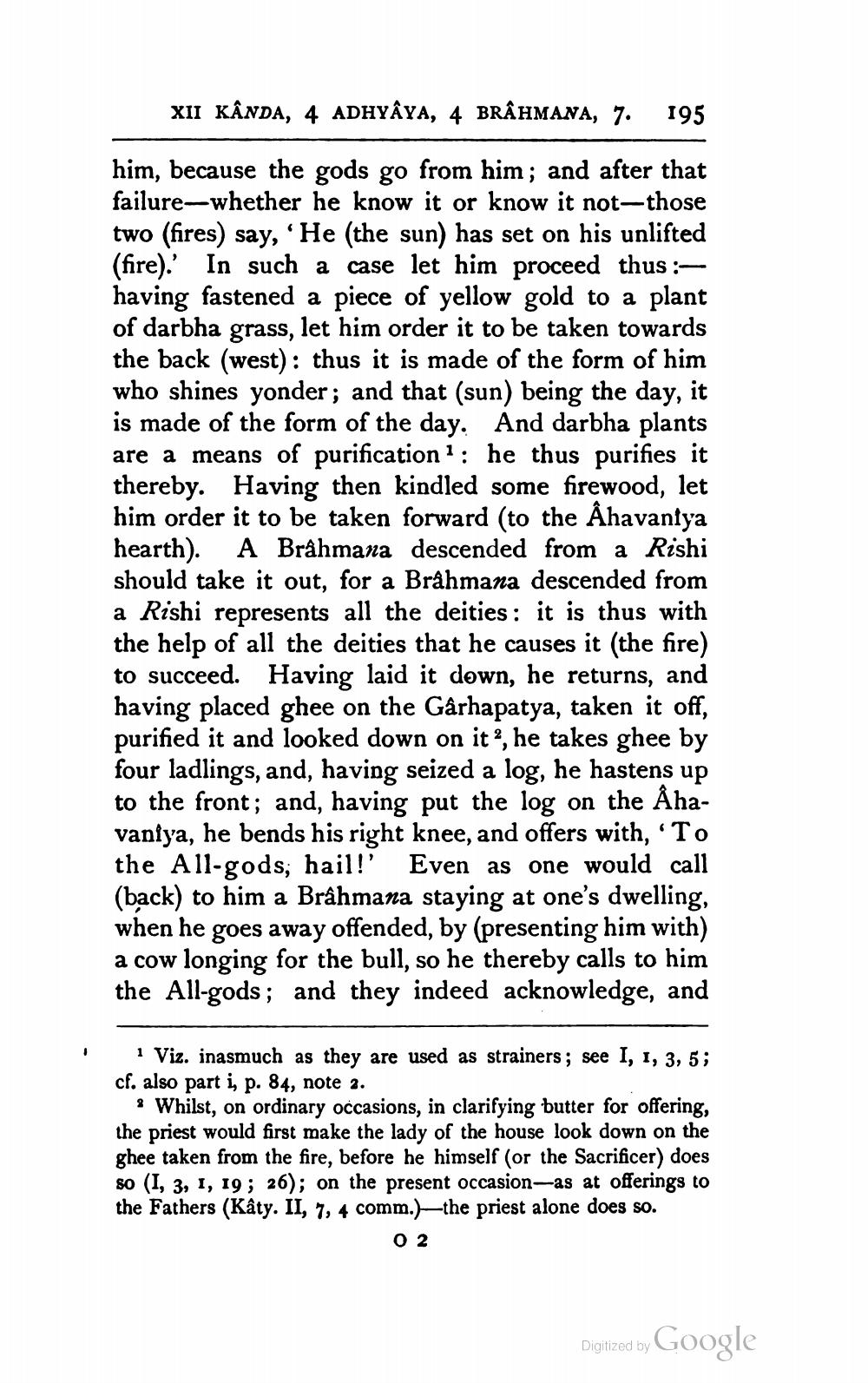________________
XII KÂNDA, 4 ADHYAYA, 4 BRÂHMANA, 7.
195
him, because the gods go from him; and after that failure-whether he know it or know it not-those two (fires) say, 'He (the sun) has set on his unlifted (fire).' In such a case let him proceed thus :having fastened a piece of yellow gold to a plant of darbha grass, let him order it to be taken towards the back (west): thus it is made of the form of him who shines yonder; and that (sun) being the day, it is made of the form of the day. And darbha plants are a means of purification 1: he thus purifies it thereby. Having then kindled some firewood, let him order it to be taken forward (to the Âhavanfya hearth). A Brâhmana descended from a Rishi should take it out, for a Brahmana descended from a Rishi represents all the deities: it is thus with the help of all the deities that he causes it (the fire) to succeed. Having laid it down, he returns, and having placed ghee on the Gârhapatya, taken it off, purified it and looked down on it?, he takes ghee by four ladlings, and, having seized a log, he hastens up to the front; and, having put the log on the Ahavaniya, he bends his right knee, and offers with, 'To the All-gods; hail!' Even as one would call (back) to him a Brâhmana staying at one's dwelling, when he goes away offended, by (presenting him with) a cow longing for the bull, so he thereby calls to him the All-gods; and they indeed acknowledge, and
1 Viz. inasmuch as they are used as strainers; see I, 1, 3, 5; cf. also part i, p. 84, note 2.
i Whilst, on ordinary occasions, in clarifying butter for offering, the priest would first make the lady of the house look down on the ghee taken from the fire, before he himself (or the Sacrificer) does 80 (1, 3, 1, 19; 26); on the present occasion-as at offerings to the Fathers (Kâty. II, 7, 4 comm.)—the priest alone does so.
02
Digitized by Google




